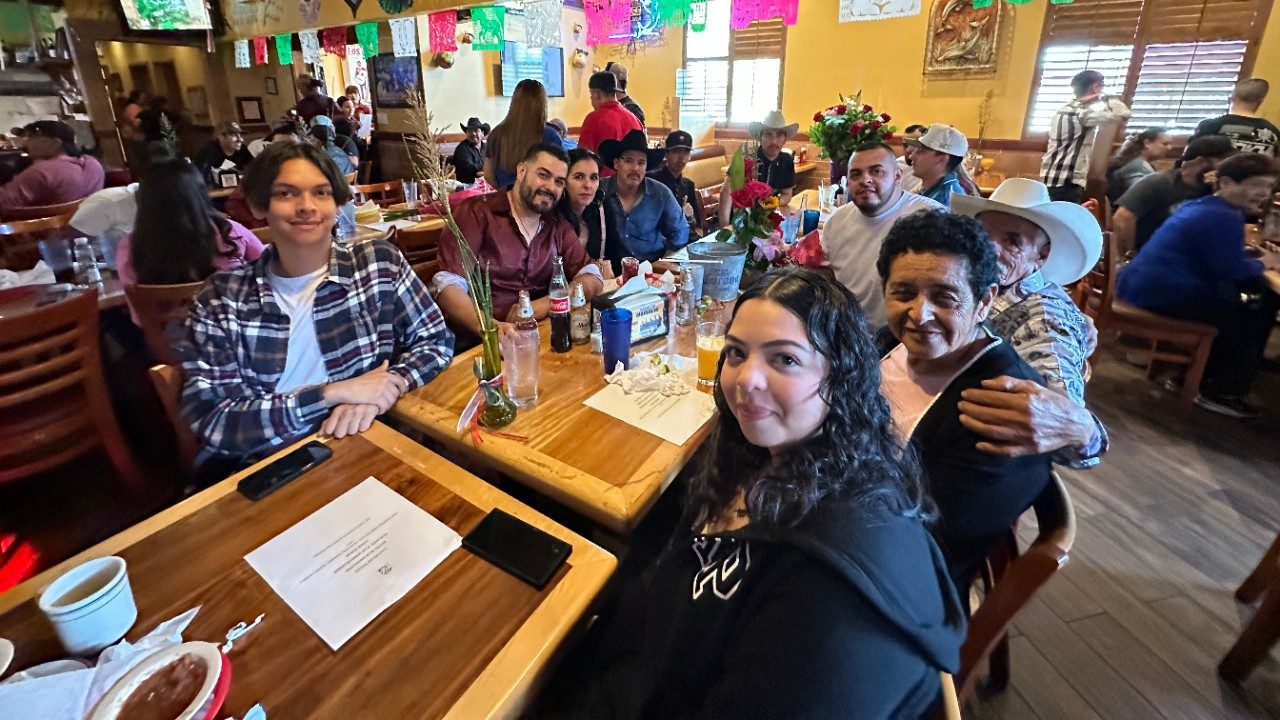LOS ANGELES — For more than two decades, the thought of hugging his parents seemed impossible for Refugio Esparza Gomez and his three brothers.
The brothers were just young men chasing big dreams when they immigrated to the U.S. from their motherland of Jalisco, Mexico, in search of a better life.
Although the idea was to return home sooner, the days turned into years, and they felt the sacrifice that comes with the American dream.
Being away from their family and unable to visit their motherland due to their immigration status took a toll.
It’s the reality for more than 2 million undocumented immigrants living in California, with around 900,000 of them living in Los Angeles.
Those trying to visit from Mexico also face challenges getting a visa. For the Esparza brothers, their parents tried getting a tourist visa five times with no luck.
They were about to give up, but they couldn’t accept having more years pass by without being together. That is when they came across an organization called Club Cuquio San Felipe. Based out of Jalisco and understanding the heartbreak that comes from migrating, they have a program focused on reuniting families that have been apart for at least a decade. They coordinate with those involved and help make sure the people have all the documents they need and get to their appointments with immigration.
Esparza’s parents, Carmen Gomez and Fortino Esparza, were in the latest cohort, along with 20 other people. They were all brought to a restaurant in Paramount, where the families were able to embrace one another again.
“We held on to the hope of seeing each other again some day, and now God has granted us this moment,” said their mother, Carmen Gomez.

Carmen Gomez talked about the pain of not seeing her kids every day or watch them grow. FaceTime calls are not the same as being able to hug them.
It’s a sentiment felt by all those present that day. One after another, those living here reunited with their parents, some of whom met their grandchildren for the first time.
Each family held on as tight and as long as they could, as if they were trying to make up for years of lost time in those seconds.
The program allows for the visiting party to stay in the U.S. for three weeks. For Refugio Esparza Gomez and his brothers, that felt like a dream.
“Thinking they could pass away before I could see them again was something that weighed very heavily on me, and now here I am enjoying them,” he said.
They went home and continued to soak up every moment together.
“I missed them the most, their home-cooked meals, too, but just being in their presence,” said, the oldest brother, Juan Luis Esparza Gomez.
The brothers said the days leading up to their parents’ arrival felt eternal. But now that their parents are here, they feel like there aren’t enough hours in a day and just hope the time would slow down.
Their youngest brother, Jose Esparza Gomez, shared that one of his favorite moments has been his mom giving him a blessing before going to sleep every night.
All three of them, now as adults, still want to enjoy their parents like they did as children. Playing board games and talking about old times, they enjoyed their company and planned for the future.
The program also helps the family members get a 10-year tourist visa after the initial trip.
“God willing, we’ll get back here in two months for Christmas,” said their father, Fortino Esparza.
The brothers shared that they have worked every holiday since they came to the U.S., given there wasn’t much family to celebrate anyway. This year, they are all holding on to the hope that it will be different.



